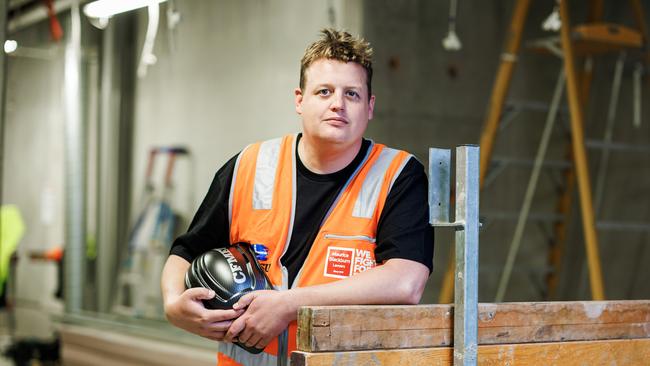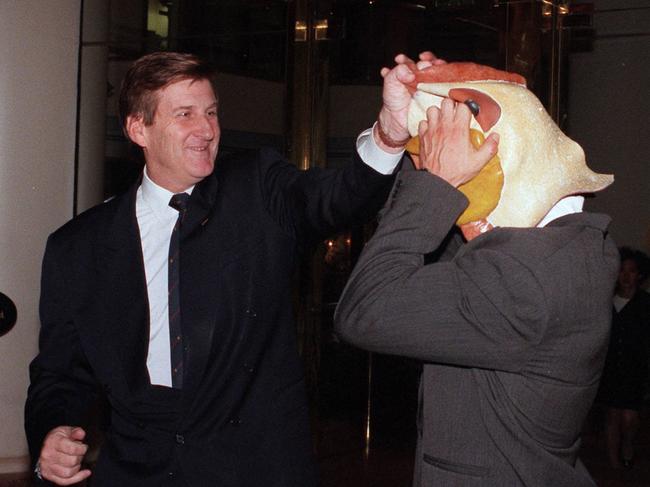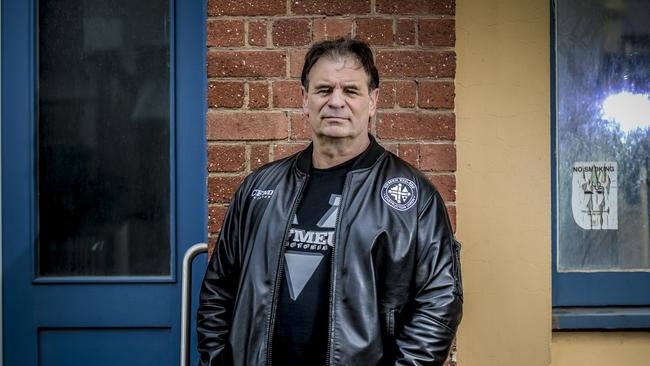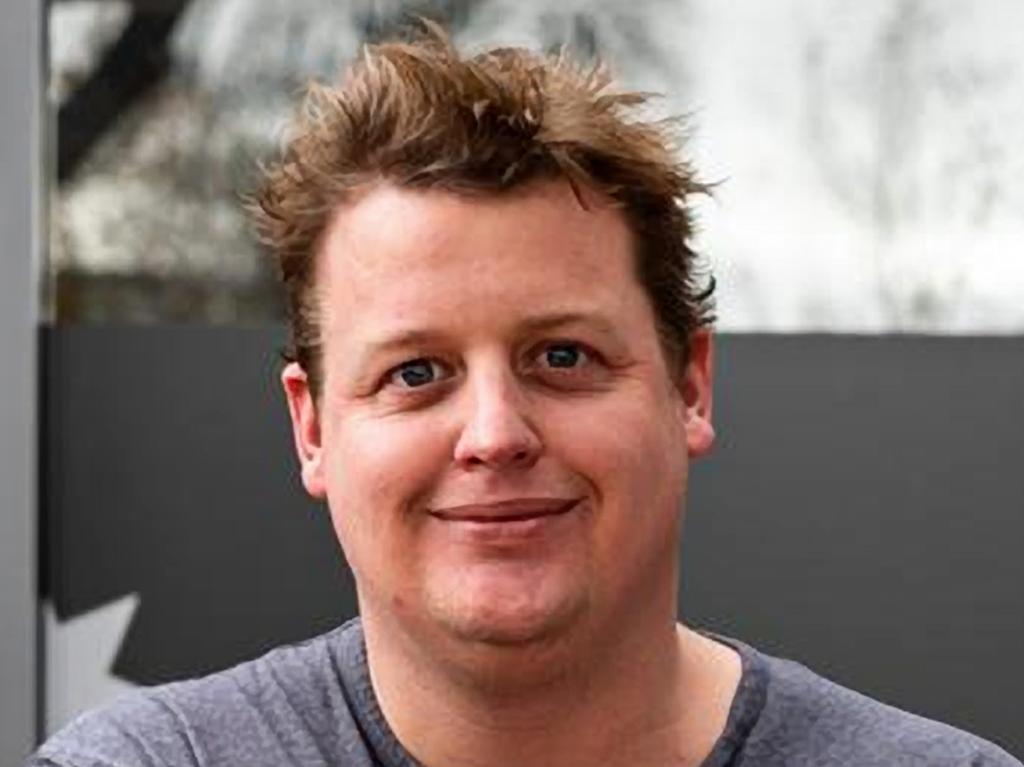CFMEU boss Zach Smith lays down the law
New CFMEU chief Zach Smith has big plans for the militant arm’s future.

As the new leader of the most militant division of the country’s most militant union, Zach Smith subscribes to the view that “sometimes bad laws need to be broken”.
“I think we are the toughest industrial union in this country. I think we are militant,” the incoming national secretary of the CFMEU’s construction division tells Inquirer. “I think it’s something we are proud of and I think the results speak for themselves: our members enjoy some of the best wages and conditions, and protection at work, of any workers in this country.”
Smith, 35, who is succeeding union veteran Dave Noonan, insists CFMEU officials do not seek to “break laws wantonly” but will act where the safety of members, or the security of their conditions, are on the line.
“I think if you have a look at a lot of social change, and improvements to safety that have been made in this country by unions, it’s often, if not in nearly all cases, involved some sort of breach of the law,” he says.
“The green bans which are celebrated now widely as being an important moment where trade unions stood alongside the community in stopping heritage sites in Sydney being destroyed, that wasn’t 100 per cent lawful.
“That involved the breaking of certain laws but no one sits back there now and goes, well, the union was on the wrong side of history for doing that. Unions banned asbestos-containing materials on site before governments acted. You have got to look at these things from a much bigger lens than just saying is it right or wrong to break the laws. It’s what is in the best interests of the people that we’re here to serve and represent. And if their safety and their conditions of employment are on the line then, absolutely, it’s justified in those circumstances.”

Smith knows about the law. Unsurprisingly for a CFMEU official, he has been subject to adverse court judgments after legal action taken by the Coalition’s Australian Building and Construction Commission, now abolished by the Albanese government. But what might surprise, especially given how CFMEU officials are caricatured by their opponents, is that Smith studied law at Deakin University’s Burwood campus in Melbourne before he worked for the union.
Born in the provincial centre of Bairnsdale, 285km east of Melbourne, Smith was exposed to politics early, courtesy of his grandmother, Alice, and his mother, Robyn, who were active in the Australian Nursing Federation and admirers of its then Victorian secretary, Irene Bolger. Former ACTU president Cliff Dolan was his mum’s great-uncle. His father Daryl was a GP.
Smith recalls being just seven or eight years old when he was taken to ALP meetings. It was the 1990s, the years of the Kennett government in Victoria, and there was plenty to protest about.
He completed year 12 and, at the age of 18, nominated to be the ALP candidate for the seat of Gippsland East at the 2006 Victorian state election. “A bit of an unusual gap year,” he jokes.

A formerly safe National Party seat, it had been won in 1999 by Craig Ingram, one of three independent candidates responsible for killing off Liberal premier Jeff Kennett’s political career and delivering power to Labor’s Steve Bracks. In 2006, Ingram retained the seat. Smith, who had turned 19, secured 4047 votes, or 11.65 per cent of the vote. “The fact they were running someone who was 19 on election day probably reflected what the Labor Party thought of their chances of winning the seat,” he says.
Gippsland East was a timber seat and Smith found himself on the radar of the union’s furnishing and forest products division, which employed him as an assistant industrial officer. He moved to Melbourne to study law and kept working for the union as an organiser before relocating to the union’s ACT branch in Canberra.
He was seconded to the construction division and moved through the ranks to become branch secretary. Smith says he felt so engaged being an organiser that he didn’t finish his degree. He says he hasn’t regretted the decision. “The union movement was always where I wanted to be. I sought out a job in the union movement,” he says.
Smith’s first boss was Michael O’Connor, the union’s former national secretary who these days, as head of the manufacturing division, is involved in a civil war with Smith’s construction division. “Michael was the one who gave me my first job in the movement, and it brings me no joy where we’re all at,” Smith says.
Asked about his vision for the construction division, he says: “I think our union is the toughest in this country industrially but there is definitely room for improvement in terms of our political voice and social reach. People should expect the union, under my leadership, to be more at the forefront of the public debate, arguing a stronger case for not just our members but also working people at large on issues not just confined to industrial relations and safety. I want our union to be really at the forefront of the public debate on housing, cost of living, the economic systems that we operate under, climate change and what that means for workers.”
Smith says the electorate needs to have a serious discussion “about this idea that the only way we curb inflation, the only way we curb cost of living, is by hitting working people with interest rate increases”.
“And there needs to be a serious conversation in this country about profit restraint, price restraints and even taxes that target excessive corporate profits. There are other mechanisms to control inflation other than just going after workers through either interest rates or saying that you have to show restraint on wages,” he says. Smith says there has been a “real lack of voices on the left calling out this economic orthodoxy and challenging the economic orthodoxy”.
He says super-profits taxes should be up for discussion. “Windfall taxes, that’s got to be on the table. How can we discount that and rule it out? That’s got to be on the table for certain.
“It’s not an unusual place for the CFMEU to sit, prosecuting more progressive policies than the ALP and trying to bring the ALP along on the journey.”
Smith has been elevated following the support of the union’s key state divisions, including Victoria, led by John Setka. Smith says he supports Setka “but most importantly his members support him”. “Whatever else anyone wants to say about John Setka, he has been an effective industrial leader and secured some of the best wages and conditions in this country for his members here in Victoria. And no one can take that away from him,” he says.
Back in 2019, ACTU secretary Sally McManus and a host of union leaders called for Setka to resign. “It’s not the role of the ACTU to say who should lead our union. Our members decide that,” Smith says. “The thing about the union movement is this isn’t some hierarchical corporate structure. It’s not as though national offices or peak bodies dictate to the unions who their leaders should be … so it’s not their place.
“We’re an affiliate of the ACTU still. I have a good working relationship with many of their officers, similar to the ALP. I will work with them to get policy outcomes. There’s no great schism there at that operational level.”
The brawling between the union’s rival divisions persists. O’Connor is backed by the mining and energy union, led by Tony Maher, which will split from the union. Smith claims the financial position of the manufacturing division is “parlous”. “If this was a corporate situation, you’d have shareholders screaming,” he says.
He says the only way things can be fixed is if O’Connor, the man who gave him his first job in the union, goes. “I don’t think it can be fixed without a leadership change at their end,” he says.
Smith has a partner, Claire, and two young children, and he was reluctant to take on the national secretary’s position. Having accepted the job, he has big plans.
With the Coalition out of power federally, the ABCC and restrictive construction code gone, the union can spend less time on the defensive. “I have respect for Noonan and his leadership over the past 15 years which I’d argue was the most challenging for any union in the country given the politicised attacks, royal commission, unjustified prosecution of officials,” Smith says.
He will pursue an industrial agenda including significant wage rises, the reinstatement of conditions banned by the code, the promotion of women in construction, training and security of payment.
But he will also push a broader agenda: housing, taxation, cost of living and climate change. “There was not a union in this country who has had a tougher 15 years in terms of ongoing attacks,” he says. “There was not much room for articulating policy agendas. I want to seize this opportunity to put the union on a different trajectory, and that trajectory is about being a leading voice for working people on those key issues.”








To join the conversation, please log in. Don't have an account? Register
Join the conversation, you are commenting as Logout